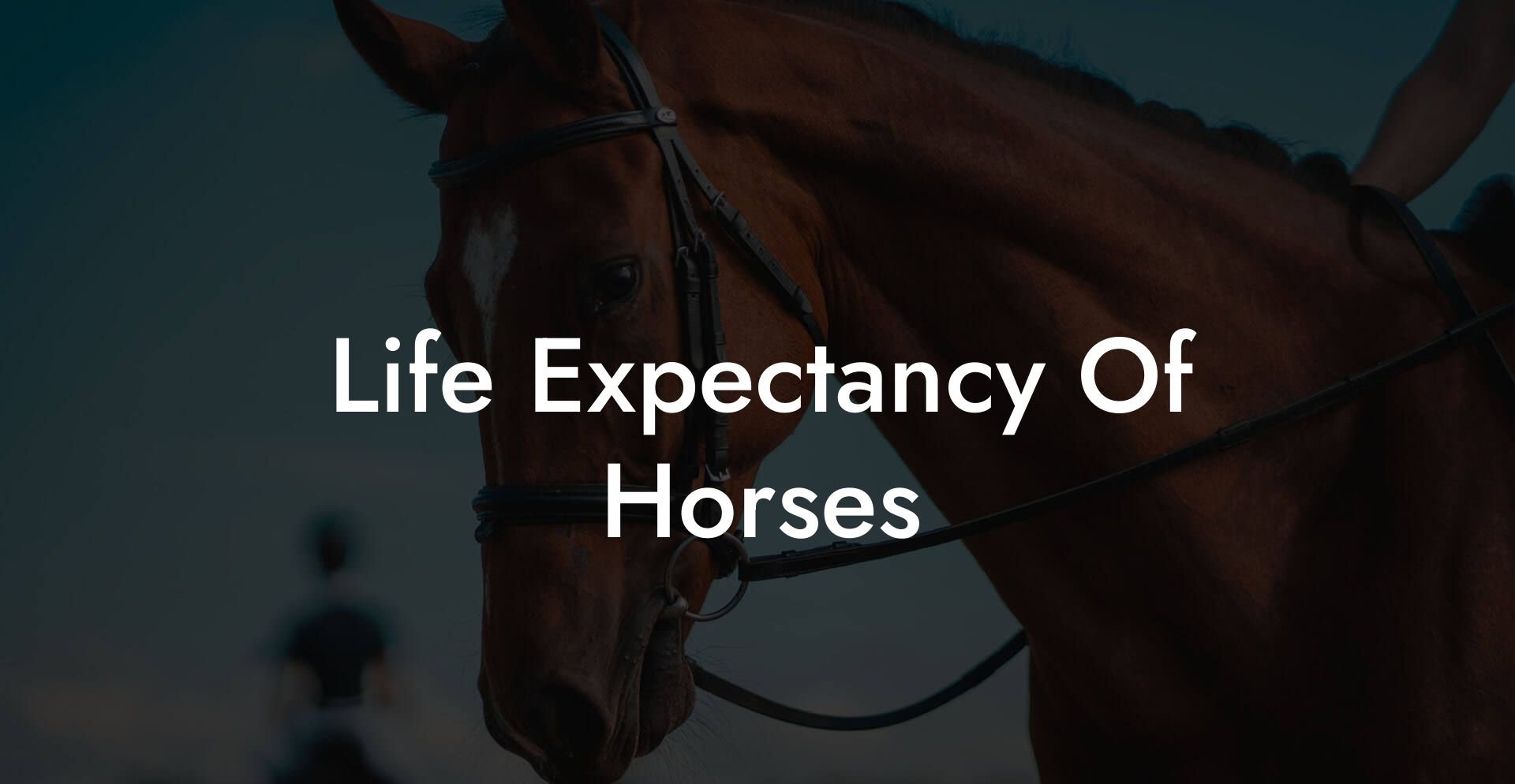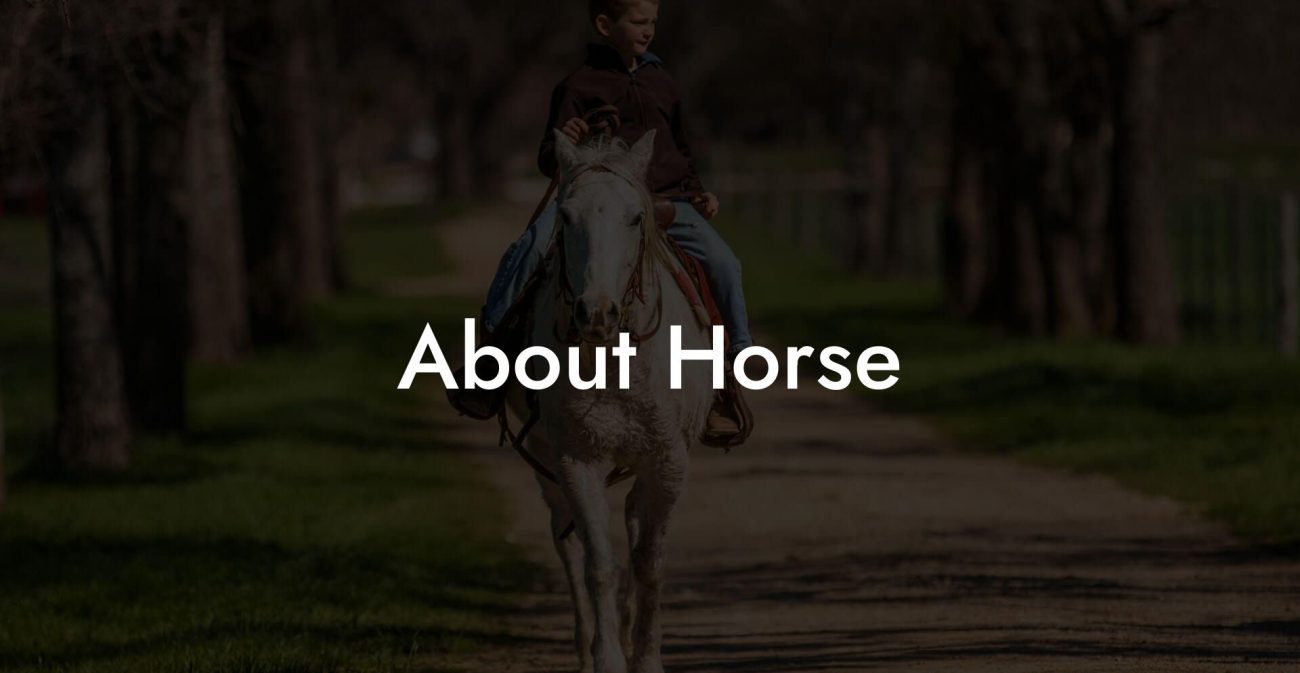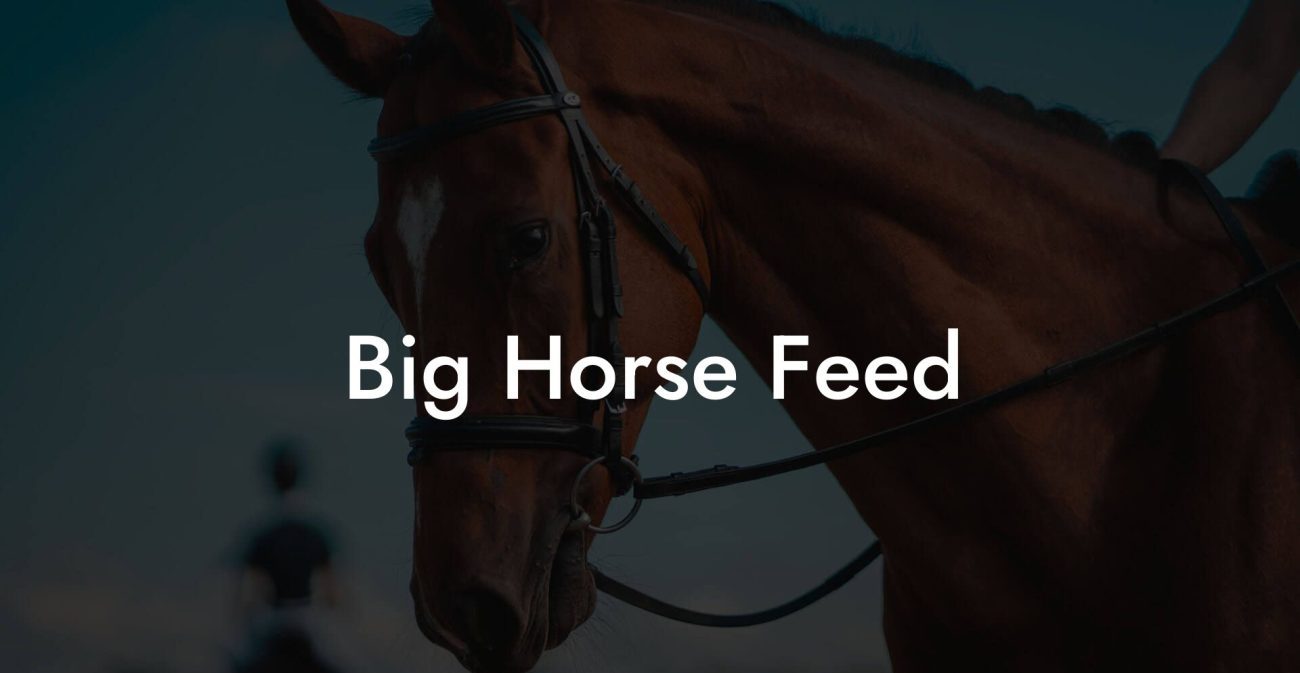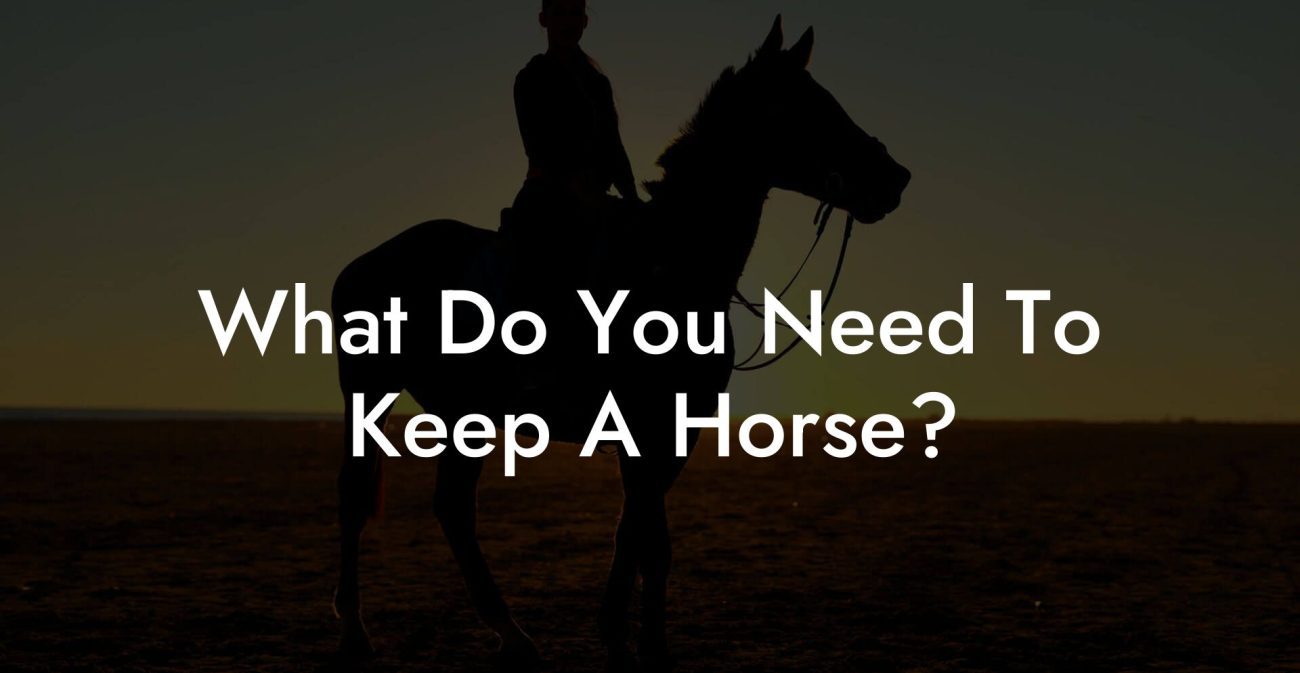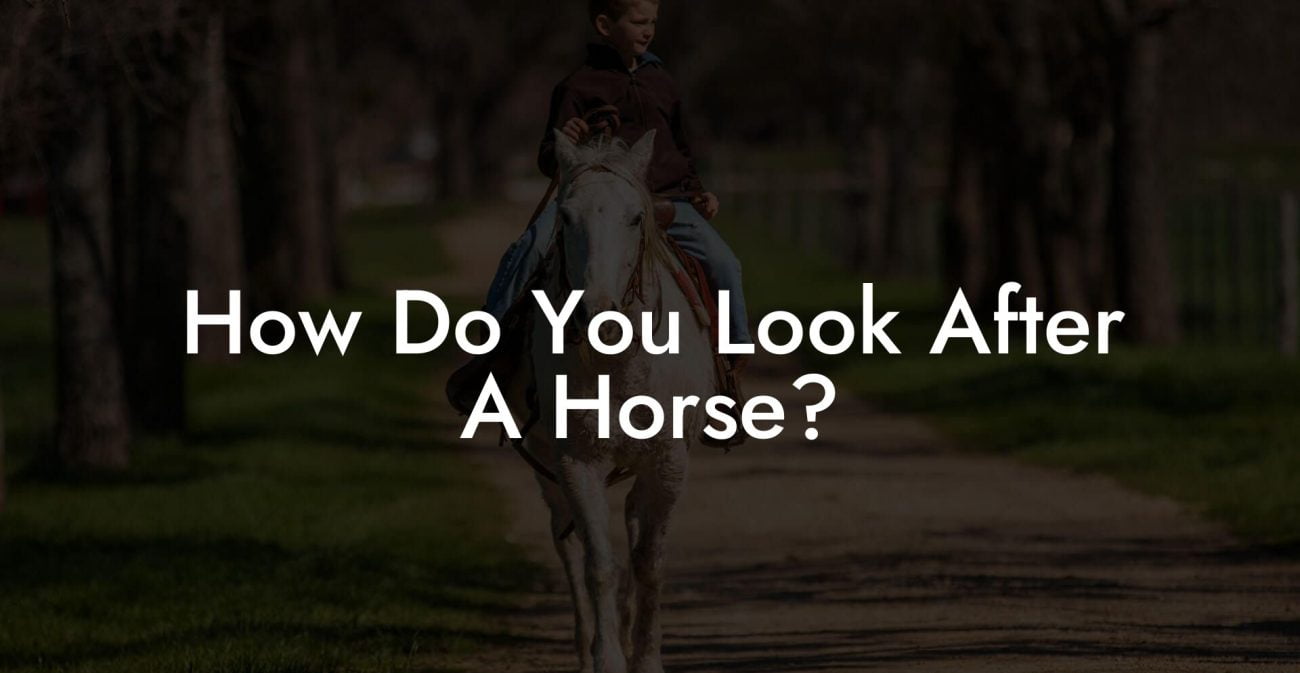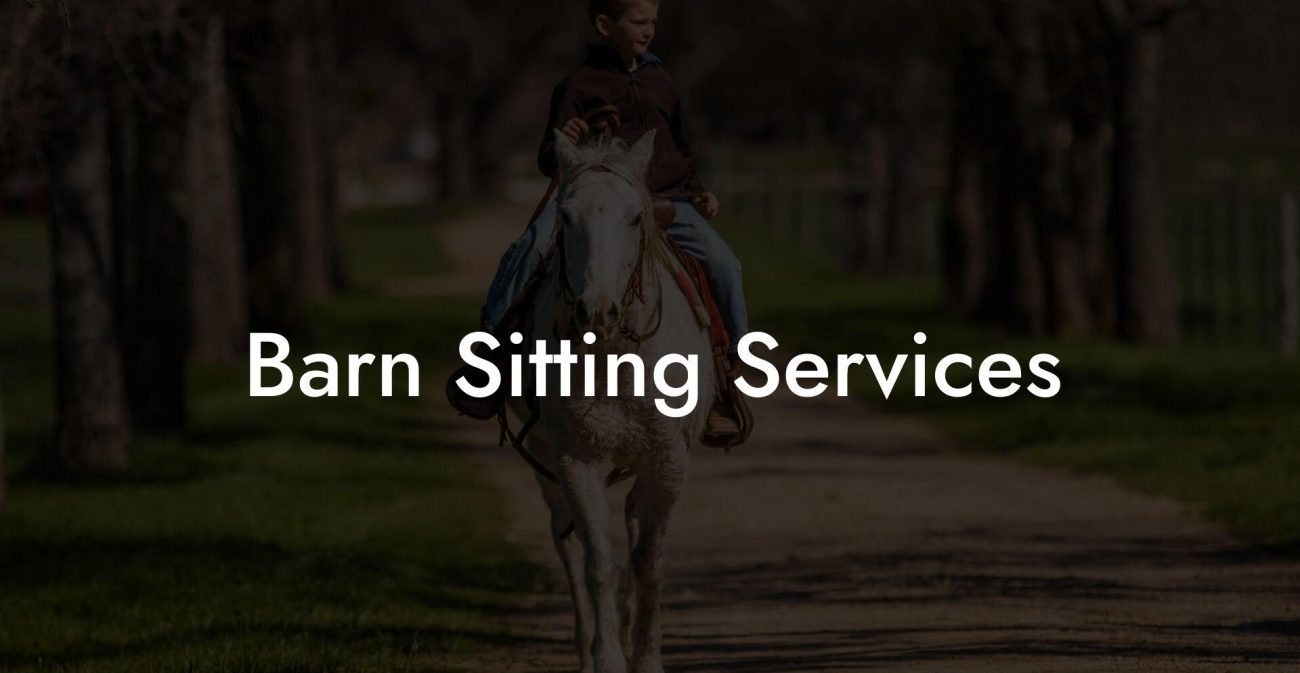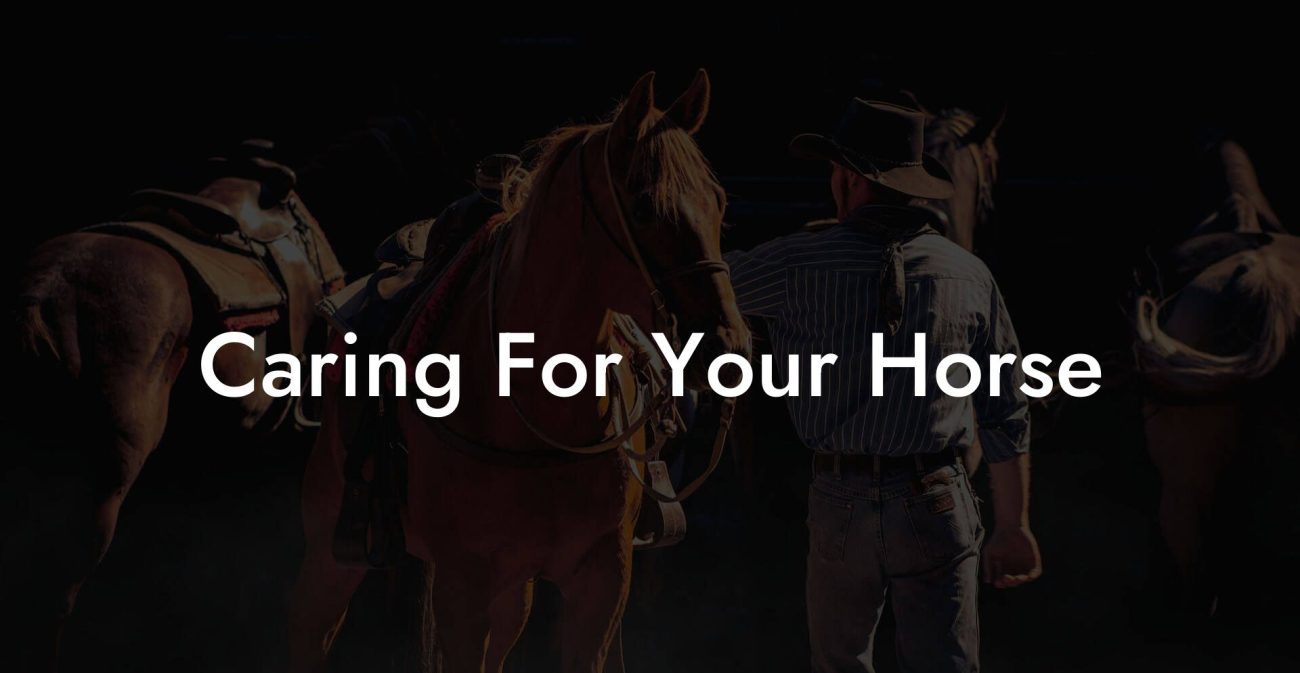Buckle up for an equine journey that’s as wild and riveting as a sunset gallop along a sprawling pasture! When it comes to understanding the life expectancy of horses and optimizing their care, it’s not all hay and horseshoes. In this comprehensive guide, we’re diving headfirst into everything that defines a horse’s life, from fascinating genetic blueprints and meticulous nutrition to innovative veterinary breakthroughs and community-driven resources. Whether you’re a seasoned horse caretaker or a Gen-Z equestrian enthusiast eager to learn the ropes, get ready for an engaging, down-to-earth exploration of how to extend your majestic friend’s lifespan and give every horse the stellar care they deserve.
Quick Links to Useful Sections
- Understanding the Life Expectancy of Horses
- Factors That Affect Horse Life Expectancy
- Genetics and Breed Characteristics
- Nutrition and Dietary Habits
- Preventative and Routine Veterinary Care
- Exercise, Environment, and Mental Stimulation
- Common Health Challenges and Their Management
- Practical Tips to Extend Your Horse's Lifespan
- Feed a Balanced, Nutrient-Dense Diet
- Stick to a Comprehensive Health Check-Up Schedule
- Create a Stimulating Living Environment
- Incorporate Regular, Targeted Exercise
- Embrace Preventive Care and Early Intervention
- Innovative Technologies Revolutionizing Equine Health
- Wearable Technology and Health Trackers
- Advanced Diagnostics and Telemedicine
- Data-Driven Equine Management
- Tales of Triumph: Case Studies of Equine Longevity
- The Veteran Racer Who Refused to Retire
- A Rescued Mare’s Journey to Wellness
- Breaking Barriers: Crossbreed Champions
- Building a Comprehensive Horse Care Plan
- Step 1: Detailed Health Assessments and History
- Step 2: Tailored Nutrition and Feeding Strategies
- Step 3: Customized Exercise Routines
- Step 4: Regular Health Monitoring and Preventative Care
- Step 5: Mental Stimulation and Social Interaction
- Resources and Community Support: Your Next Steps
- Your Journey to a Long and Healthy Equine Life
- Frequently Asked Questions About Horse Life Expectancy
- Galloping Forward: Embracing a Future of Enhanced Equine Care
Understanding the Life Expectancy of Horses
Horses have trotted alongside humans for centuries, known not only for their power and elegance but also for their surprising longevity. The average life expectancy of horses typically falls anywhere between 25 to 30 years, although individual horses have been known to gallop into their 40s and beyond with the right care. This lifespan, though impressive, is influenced by a variety of factors that can shave years off or add extra primes to a horse’s life.
Horse lifespan isn’t just a number, it’s a reflection of the health, genetics, and lifestyle that define an animal’s journey. From high-performance athletes running at breakneck speeds to leisurely pasture dwellers, each horse carries its unique story in its trot, whinny, and occasional playful nicker.
In today’s modern world, where Gen-Z meets traditional horse aficionados, understanding equine care involves a fascinating mix of age-old wisdom and innovative techniques. Let’s gallop into the details of what determines a horse’s life expectancy and how holistic and technological improvements are reshaping equine care.
Factors That Affect Horse Life Expectancy
Just like humans, horses are influenced by a myriad of components that collectively determine their lifespan. While genetics lay the foundation for a horse's longevity, daily care, environment, and even their stress levels play a considerable role in their overall health. Let’s break down the key factors that can either boost or diminish the life expectancy of your equine companion.
Genetics and Breed Characteristics
Genetics are the blueprint of life, and with horses, your breed background is essential to understanding potential lifespan. Certain breeds, like Arabians and Quarter Horses, are renowned for their durability and robust health, making them more likely to enjoy long, vibrant lives. Conversely, some breeds may be predisposed to genetic conditions that can impact their health as they age.
Additionally, selective breeding practices have enhanced traits such as speed, strength, and agility, but sometimes at the expense of longevity. Incorporating genetic testing and careful selection into breeding programs can help foster healthier, longer-lived horses, benefiting both the animals and their human counterparts.
Nutrition and Dietary Habits
Think of nutrition as the premium fuel for your favorite sports car. For horses, a balanced diet is critical to maintaining not just their vitality, but their ability to stave off diseases that can cut life short. High-quality hay, grains, and fresh, clean water need to be the staple of a well-rounded equine diet. Supplements, like omega-3 fatty acids, vitamins, and minerals, can also play a key role in fortifying a horse’s immune system and overall health.
The modern equine world now boasts innovations such as specially formulated feeds and precision feeding programs tailored to the individual needs of each horse. Integrating these nutritional strategies into your horse care routine can significantly extend life expectancy and enhance the quality of life.
Preventative and Routine Veterinary Care
Regular check-ups with a trusted veterinarian are the bedrock of preventative equine healthcare. Keeping up with vaccinations, dental care, and deworming schedules is essential to fend off common maladies that can shorten a horse’s life. Early detection of conditions such as colic, laminitis, or respiratory issues is often the difference between a treatable ailment and a life-threatening crisis.
Modern veterinary care has evolved, with sophisticated diagnostic tools and minimally invasive procedures now available. Equine health management software, telemedicine consultations, and regular wellness screenings are part of a holistic approach that ensures each horse has the best possible chance at a long, healthy life.
Exercise, Environment, and Mental Stimulation
Horses were born to run and roam vast pastures, a testament to the importance of regular exercise and mental stimulation in their daily lives. A well-exercised horse is not only physically fit but also mentally content. Proper turnout time, safe and spacious stabling, and a balanced routine of controlled exercise are crucial for maintaining flexibility, muscle tone, and a sharp mind.
The living environment, be it a busy stable or an open field, affects stress levels and overall welfare. Ensuring that your horse enjoys a clean, safe, and stimulating environment can dramatically boost their immune system and contribute to longevity.
Common Health Challenges and Their Management
Despite the best care, horses can face an array of health challenges that may shorten their lifespan. Common issues include colic, arthritis, respiratory infections, and wounds that might lead to complications if not managed promptly. A proactive approach, one that emphasizes early intervention, regular health monitoring, and a keen eye for changes in behavior, can make a world of difference in preventing serious health setbacks.
With advancements in veterinary medicine, many of these health challenges can be managed more effectively today than ever before. From cutting-edge surgical techniques to natural remedies and rehabilitation therapy, these methods are steadily extending the “golden years” of equine life.
Practical Tips to Extend Your Horse's Lifespan
While it might seem that genetics are set in stone, the quality of care you provide is the trump card in the longevity game. Taking proactive steps to extend the life expectancy of your equine companion is both an art and a science. Here are actionable strategies designed to help you care for your horse like a pro.
Feed a Balanced, Nutrient-Dense Diet
A nutrient-rich diet is essential to fuel your horse’s daily activities while keeping health issues at bay. Emphasize high-quality hay and grains, and don’t shy away from incorporating fresh greens when the season allows. Tailor the diet to the horse’s age, workload, and body condition, and consult with an equine nutritionist if you’re unsure about the optimal feeding regimen.
In today’s digital age, there are apps and online tools that allow you to monitor feeding schedules and nutritional intake with precision. These innovations translate into more informed decisions, ensuring that every meal contributes to your horse's long-term vitality.
Stick to a Comprehensive Health Check-Up Schedule
Regular veterinary visits are non-negotiable if you want to spot issues before they spiral out of control. Schedule routine dental exams, vaccinations, and parasite control measures. Keeping detailed health records not only helps in tracking your horse’s progress through the years but also serves as a valuable resource should emergencies arise.
In many modern stables, innovative tracking systems alert you when it’s time for a medical review, ensuring that preventive care remains at the forefront of your horse’s health plan.
Create a Stimulating Living Environment
Horses thrive on routine, social interactions, and exploration. Design a living space that offers both security and stimulation, think wide open pastures, safe fencing, and areas designated for play. Social creatures by nature, horses also benefit enormously from the company of their peers, so fostering a community environment is key.
Introduce puzzle feeders, varied grazing patterns, and different textures underfoot to not only keep your horse physically active but also mentally engaged. A happy horse is a healthy horse!
Incorporate Regular, Targeted Exercise
A daily trotting session or interval training through varied terrains not only builds muscle but also improves cardiovascular health. Whether your horse participates in competitive events or leisurely trail rides, make sure that its exercise routine is tailored to avoid overexertion while promoting steady fitness.
Innovations like wearable trackers for horses offer insights into activity levels, helping you calibrate workouts to ensure that the horse stays in peak condition without unnecessary strain.
Embrace Preventive Care and Early Intervention
Early diagnosis and rapid intervention are the cornerstones of modern equine health management. Maintain a vigilant watch over changes in your horse’s behavior and appetite, and don’t hesitate to seek veterinary care at the first sign of trouble. Whether it’s a minor limp or a subtle change in coat quality, early intervention can prevent complications down the line.
With emerging technologies like tele-veterinary consultations and advanced imaging techniques, getting expert advice has never been easier.
Innovative Technologies Revolutionizing Equine Health
The digital revolution has galloped its way into the equine world with innovations that integrate data science, wearable technology, and sophisticated diagnostics. If you’re envisioning your horse as a tech-savvy athlete, then this segment is for you!
Wearable Technology and Health Trackers
Imagine a device that monitors your horse’s heart rate, GPS location, and even its movement patterns round the clock, all while sending real-time updates to your smartphone. Wearable trackers are making this a reality. These gadgets provide vital statistics that can indicate early signs of stress or health issues, allowing owners and veterinarians to act before small issues become major concerns.
Such tools are particularly popular among competitive equestrians and tech enthusiasts alike, marking a new era of precision in equine health monitoring.
Advanced Diagnostics and Telemedicine
Ultrasound imaging, digital radiography, and even endoscopic examinations are now part of the routine diagnostic arsenal available to horse owners. These advanced techniques ensure that structural and functional issues are identified early on. With telemedicine, remote consultations with specialists have become easier, breaking traditional boundaries of access and timing.
In a world where time is of the essence, telemedicine ensures that your horse receives timely advice and intervention, often reducing the need for invasive procedures and lengthy hospital stays.
Data-Driven Equine Management
Gone are the days of guesswork. Modern stables can utilize integrated software to track every aspect of a horse’s health, from precise feeding habits and exercise routines to veterinary appointments and recovery progress. These digital records help in making data-driven decisions that individualize care protocols, enhance efficiency, and ultimately contribute to a longer, healthier life for your horse.
Embracing these technologies means not only celebrating innovation but also empowering you to provide a level of care that’s reflective of the best in modern science.
Tales of Triumph: Case Studies of Equine Longevity
Real-life stories often speak louder than statistics, and the legacy of horses that have defied the odds is both inspirational and instructive. From champions who have outlasted their expected lifespans to rescue horses given new leases on life through comprehensive care programs, these case studies illustrate the transformative power of proper management.
The Veteran Racer Who Refused to Retire
Meet Apollo, a thoroughbred whose racing career was cut short by injuries but who went on to become an icon of recovery. With the help of specialized rehabilitation programs, regenerative therapies, and an unwavering commitment to proper nutrition and exercise, Apollo not only made a remarkable recovery but lived a vibrant life well into his late 30s. His story is a testament that with the right approach, even the fiercest competitors can enjoy longevity.
A Rescued Mare’s Journey to Wellness
Luna, a gentle mare with a history of neglect, was rescued by a passionate group of equine lovers who believed every horse deserved a second chance. Through diligent veterinary care, a nutrient-rich diet, and the incorporation of holistic therapies like acupuncture and massage, Luna’s health blossomed. Today, she’s an energetic member of her community, inspiring countless others to embrace the transformative power of comprehensive care.
Breaking Barriers: Crossbreed Champions
Crossbreeding often brings together the best of two worlds, and one such remarkable case involved a stallion who combined the robust nature of draft breeds with the agility of lighter breeds. Through personalized care routines that focused on the unique needs of crossbreeds, specialized diets, tailored exercise routines, and continuous genetic monitoring, this champion defied odds by living well beyond the average expectancy. His legacy showcases how understanding and leveraging genetic diversity can result in extraordinary longevity.
These success stories not only inspire hope but also underscore that with the right blend of care, technology, and community support, extending the life expectancy of horses is within reach.
Building a Comprehensive Horse Care Plan
Just as every rider develops a unique bond with their horse, creating a personalized care plan is essential to ensure that every aspect of a horse’s well-being is addressed. A meticulous care plan combines science, technology, and love, where every detail counts.
Step 1: Detailed Health Assessments and History
Start with a thorough examination. A complete history of veterinary visits, previous injuries, and known genetic conditions will provide the baseline needed to tailor specific dietary, exercise, and treatment regimens. Digital records and health tracking software can be invaluable in this stage.
Step 2: Tailored Nutrition and Feeding Strategies
Evaluate the horse’s nutritional needs based on age, workload, and health status. Collaborate with an equine nutritionist to devise a diet that includes high-quality hay, grains, and supplements as needed. Periodic dietary reviews can help fine-tune the plan as seasons and workloads change.
Step 3: Customized Exercise Routines
Whether it’s routine light trotting or specialized training sessions, designing an exercise plan that enhances muscle tone without causing undue stress is vital. Integrate feedback from wearable trackers to adjust workloads appropriately.
Step 4: Regular Health Monitoring and Preventative Care
Schedule consistent veterinary check-ups and incorporate modern diagnostic tools such as digital imaging and telehealth consultations. This proactive approach helps detect potential issues early and ensures timely intervention.
Step 5: Mental Stimulation and Social Interaction
Incorporate environmental enrichment into the care plan. Regular turnout, social interaction with other horses, and engaging activities keep your equine friend mentally sharp and emotionally balanced.
Combining these elements into a comprehensive care plan ensures every facet of your horse’s life is optimized, creating a solid foundation for a long, healthy, and vibrant life.
Resources and Community Support: Your Next Steps
Venturing into the world of horse care can feel daunting, but you don’t have to ride this trail alone! A wealth of resources exists, from online equine health communities and forums to local veterinary networks and national equestrian organizations. Engage in online groups on social media platforms, subscribe to trusted equine health newsletters, and attend rodeos or local stable events. These communities are treasure troves of advice, real-life experiences, and the latest research, empowering you to always stay informed.
Harness the power of community support to exchange tips, troubleshoot challenges, and celebrate milestones in your horse’s journey. Finding a mentor, someone who’s been through the ups and downs of equine care, can also be a game-changer, offering personalized insights that enrich your own understanding.
Your Journey to a Long and Healthy Equine Life
Embracing the philosophy of comprehensive equine care is akin to crafting an epic tale, where every chapter reflects the passion, dedication, and love poured into your horse’s life. By prioritizing balanced nutrition, regular exercise, state-of-the-art veterinary care, and a nurturing environment, you set the stage for a vibrant, long life for your equine partner.
As you embark on this journey of continual learning and proactive care, remember that every little improvement counts. Whether it’s celebrating a successful health milestone or discovering a new tech tool that enhances your routine, the blend of tradition and modernity will keep your horse’s life expectancy soaring.
In today’s world, where equine health integrates holistic approaches with digital innovations, the future is brighter than the midday sun on a wide-open field. Every moment dedicated to understanding your horse’s unique needs builds a lasting bond, a bond that transforms routine care into an artful practice of passion and persistence.
So take the reins, fuel your curiosity, and gallop forward with confidence. The promise of a healthy, long, and joyous life for your horse is not merely a dream, it's a journey paved with knowledge, innovation, and unwavering commitment.
Frequently Asked Questions About Horse Life Expectancy
Curious about some common queries surrounding the life expectancy of horses and optimal care practices? We’ve gathered a host of frequently asked questions to address your burning questions:
1. What is the average life expectancy of a horse?
Most horses live between 25 to 30 years, though many factors such as breed, care, and genetics can influence the exact number. With exceptional care, some horses live well beyond 30 years.
2. How does nutrition influence a horse’s lifespan?
A balanced diet rich in quality hay, grains, fresh water, and essential supplements is vital for maintaining a horse’s health, bolstering its immune system, and preventing age-related diseases, thus positively impacting their longevity.
3. What role does regular veterinary care play in extending a horse’s life?
Routine veterinary check-ups help detect potential health issues early on, allowing for timely interventions and preventative treatments, which are key to maximizing a horse’s lifespan.
4. Can advanced technology really make a difference in equine care?
Absolutely! Innovations such as wearable health trackers, telemedicine, and advanced diagnostic imaging provide critical insights into your horse's wellbeing, ensuring you can make informed decisions for proactive care.
5. How important is exercise for maintaining a horse’s health?
Regular, appropriately tailored exercise routines strengthen muscles, improve cardiovascular health, and reduce stress, all of which are essential components in enhancing a horse’s life expectancy.
6. Are there any natural remedies that help in keeping horses healthy and long-lived?
While natural remedies such as herbal supplements and acupuncture can complement traditional treatments, it’s crucial to consult with a veterinarian to ensure these methods suit your horse’s specific needs.
7. What environmental factors can impact the lifespan of horses?
A clean, well-maintained environment with adequate space, proper shelter, and social interaction helps reduce stress and the risk of injury or illness, all supporting a longer, healthier life.
8. How can I monitor changes in my horse’s health over time?
Maintaining detailed health records, using regular veterinary check-ups, and leveraging modern tracking technology can all help monitor your horse’s well-being and quickly identify any areas of concern.
9. Is it possible to increase a horse’s lifespan through advanced therapies?
Yes, integrating modern veterinary technologies, routine diagnostics, and tailored exercise and nutritional plans has been shown to effectively extend the lifespan and improve the quality of life of horses.
10. Where can I find more resources on best practices in horse care?
Numerous online communities, equine health organizations, and veterinary networks offer up-to-date information and advice. Engaging in these resources can help you stay informed and connected with other horse enthusiasts.
Galloping Forward: Embracing a Future of Enhanced Equine Care
The world of horses is evolving, and so is the commitment to ensuring their lives are as rich, long, and fulfilling as possible. With a steadfast focus on personalized care, modern technology, and expansive community support, every horse owner, breeder, and enthusiast has the power to shape a thriving, extended lifespan for these magnificent creatures.
Embrace a future where traditional wisdom meets cutting-edge innovation, where every feeding, check-up, and outdoor run is a tribute to your horse’s well-being. The journey is full of learning, growth, and moments of triumph that affirm the bond between you and your equine companion.
So, kick off your boots, grab that hay bale, and join a community of forward-thinking horse lovers who are rewriting the story of equine longevity. The keys to an extended, thriving life for horses are in your hands, unlock the full potential of your horse’s care and enjoy the ride of a lifetime!

